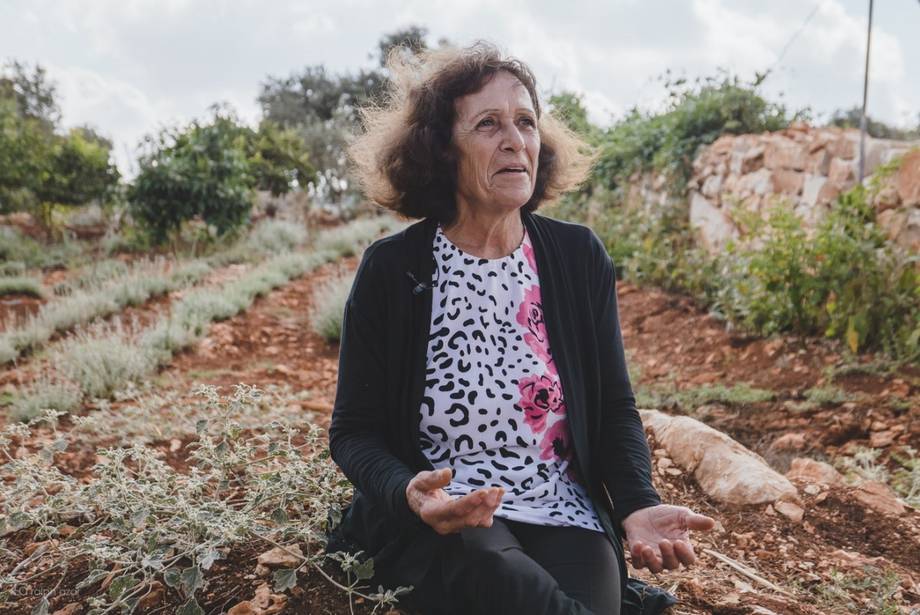
In the town of Zawtar El Sharkiyeh, in South Lebanon, Afaf Qaddouh spends most of her time in her land amid fields of Za’atar (Oregano), tomatoes, cucumber, and melons. Walking next to her silvery-leaved olive trees, Afaf looks happy and satisfied. “I come here not only to work but also to enjoy my time in nature so I can come back home relieved and relaxed”, she said.
Afaf benefitted from a grant through the Green Plan to the FAO-Led project “Promotion of Agricultural Livelihoods and Employment through Investment in Land Reclamation and Water Reservoirs” funded by the Kingdom of Netherlands. The grant allowed her to invest in land reclamation, water reservoir and retaining walls.
In collaboration with the Ministry of Agriculture’s Green Plan, this project responds to the reduced livelihood and food security levels resulting from the Syria crisis. It constitutes a humanitarian-development nexus. This means working coherently to address the immediate needs of vulnerable people negatively impacted by the crisis while ensuring a long-term developmental impact. In this context, the project aims at supporting small-scale Lebanese farmers through investment in agricultural infrastructure, mainly land reclamation and water reservoirs and other complementary works, such as retaining walls and tree seedlings planting, while creating job opportunities for vulnerable Lebanese in host communities and for displaced Syrians. The project develops as well the institutional capacities of the Green Plan.
“I can never thank FAO enough for their prompt support”, added Afaf. As an appreciation to this support, she prepared a banner: “This land reclamation couldn’t be possible without the help of the Green Plan and FAO”.
Afaf highlights the challenges facing women farmers in Lebanon nowadays. Afaf is also an advocate for women empowerment and financial independence. “Being productive is not wrong. What is wrong is to be dependent on someone else”, she adds. Based on her life experience, Afaf believes that sustaining women producers is crucial to the survival of agriculture in Lebanon. “I love my land and I can never sell it. My land is my life.”
